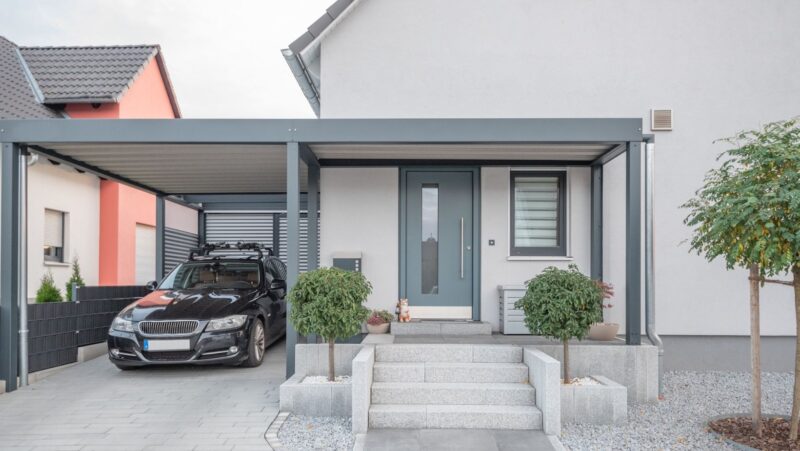
Gardening has become a popular trend among homeowners in recent years, with more and more people turning to their own backyards to create beautiful, tranquil spaces. For those who are new to gardening, this process can be quite intimidating.
The good news is that anyone can achieve their dream garden with some practical tips and simple tricks. Here, we will share 6 practical tips that will help you transform your outdoor space into a stunning oasis right at home. Let’s begin!
Know Where to Find the Right Tools
Gardening can be a relaxing and rewarding hobby, but it can also be a tedious task if you don’t have the right tools. A visit to your local garden center or nursery can equip you with recommendations on essential tools such as a trowel, gloves, pruners, and a watering can. These tools will make gardening much easier and allow you to spend more time enjoying your garden. In addition to these basic tools, you may also want to consider investing in more advanced tools like mowers from Greenworks, as they can make a significant difference in maintaining your lawn. If you’re ready to take gardening to a whole new level, you can also consider purchasing power tools like leaf blowers, hedge trimmers, and chainsaws.
Choose the Right Plants
For plants, take into consideration your region’s climate, soil type, and the amount of sunlight your garden receives. When you choose varieties that are well-suited to these conditions, you’ll set yourself up for success. Plants that are adapted to your climate and soil type will thrive more easily and require less attention and upkeep.

If you don’t have much time to dedicate to gardening, opt for low-maintenance plants that require less water and pruning. Some examples include succulents, lavender, and ornamental grasses. On the other hand, if you love spending time in your garden and have a green thumb, you can consider more high-maintenance plants such as roses or orchids.
Invest in Quality Soil
As an avid gardener, you know that good soil is essential for healthy plants. Without the proper nutrients, your plants won’t be able to grow and flourish to their full potential. Take the time to test your soil and invest in quality soil amendments if needed. You can also create your own compost using kitchen scraps, yard waste, and other organic materials.
Maybe you’ll even consider setting up a small compost bin in your backyard to reduce waste and provide nutrient-rich soil for your garden. With good soil, you can ensure that your plants have everything they need to thrive. Additionally, keep in mind that chemical herbicides can negatively impact the microbiota in your soil and harm your health. To keep your garden healthy, look for safe alternatives to harmful herbicides.
Water Wisely
Watering your plants may seem like a simple task, but it’s crucial to do it correctly. Different plants have different watering needs, so make sure you’re aware of the requirements for each plant in your garden. As a general rule, water deeply rather than frequently to encourage root growth and drought tolerance.
You can also invest in tools that conserve water, such as drip irrigation systems or soaker hoses.

These methods deliver water directly to the roots, reducing water waste and promoting healthier plants. It’s also a good idea to water in the morning or evening when temperatures are cooler, as this reduces the risk of evaporation.
Mulch Matters
Apart from adding a beautiful finishing touch, mulch serves as a protective layer that has numerous benefits. To retain the soil’s moisture, mulch ensures that your plants receive the right amount of water, even during dry spells. Its ability to suppress weeds means that your garden beds stay neat and tidy without having to spend hours weeding.
Organic mulches provide nutrients to the soil as they break down over time, thus improving soil fertility. It doesn’t matter if you are a beginner or an experienced gardener; applying mulch is a simple yet effective way to enhance the health and beauty of your garden.
Maintenance is Key
Last but not least, always remember that gardening is an ongoing process. Consistent weeding, pruning, and deadheading are crucial to keeping your yard looking its best. Skipping these tasks can lead to unsightly overgrowth, unwanted seed dispersal, and a lack of blooms.
You also need to stay vigilant for pests and diseases. If not addressed promptly, they can quickly spread and cause irreversible damage to your plants. When you keep up with regular maintenance, you can ensure that your garden thrives and remains a source of beauty and enjoyment for years to come.
Creating a breathtaking garden at home is an attainable goal with the right approach and tools. By selecting the appropriate plants, investing in quality soil, watering wisely, utilizing mulch effectively, and maintaining your space diligently, you can cultivate a garden that looks splendid and provides a serene retreat at the same time. Know that patience and perseverance are just as important as the seeds you sow — with time and care, your garden will grow into a testament to your hard work and passion for nature.












